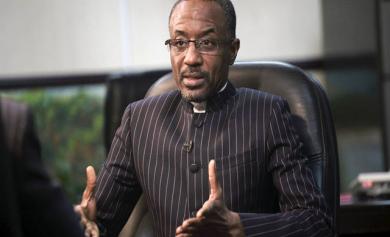
The three commercial banks nationalised last month, Spring Bank, Afribank, and Bank PHB, are currently facing identity difficulties.
Investigations by LEADERSHIP revealed that customers of the bank, particularly the illiterate class, are worried that the failure of the affected banks to boldly indicate their new names and logos in branch offices, including the Federal Capital Territory (FCT) Abuja, might be due to some administrative challenges.
None of the three nationalized banks has mounted their signage in consonance with their new identity. LEADERSHIP, however, discovered that the story is different at their corporate headquarters in Lagos.
Although the headquarters of these banks have mounted their new signage, reports from customers indicate that these banks are yet to do away with the old bank transaction documents, even as some are still stuck with files and letter heads bearing their previous names.
Some observers have attributed the development to the cost implications, just as others believe the change came as a surprise to the banks’ staff.
At the premises of Enterprise Bank Ltd, formerly Spring Bank, in Wuse, in the FCT Abuja, there was no signage in front of the bank’s premises.
An official of the bank, who spoke under anonymity, said the branch as well as other branch offices of the bank was awaiting the shipment of the signage from its headquarters in Lagos.
He noted that the branches had no power to produce one of their own.
But another top official of the bank, Mr. Olalekan Oladokun, assured that the bank’s signage were already up at the headquarters, even as he noted that the bank’s customers were not perturbed by the absence of a signage since they trusted that their funds were secured.
He described the transformation as a welcome development which had helped to strengthen its financial base.
The Enterprise Bank, however, has produced new tellers among other documents indicating the bank’s new name and logo.
But at Key Stone Bank, formerly called Bank PHB, a visit to its branches in Wuse 2 and at Wuse market revealed that the bank had not mounted its new signage.
Inside the bank, however, some customers were seen making documentations in forms with the name of Bank PHB. But one official of the bank said documents and letter heads bearing the new name were available.
Commenting on this, the head, Corporate Communication, Central Bank of Nigeria (CBN), Muhammed Abdullahi, said no law bars the banks from using their old cheque books and tellers.
He attributed the delay in making the changing to logistics, especially the huge cost involved.
“Some of the nationalized banks have about 200 to 300 branches and it would take a lot of funds to change this.
Since it does not affect their banking activities so it is not a problem.
It might take them some time to finish printing new cheques and other materials that would bear the new name as well as changing their sign posts.
Already, some of the branches have effected the change.
Also at the Afribank operational head office in Area 3, in Abuja, there was no sign of the bank’s new name or logo. Inside the bank, customers transacted business freely with the old documents still bearing Afribank.
Also, investigations showed that in Lagos metropolis, while some of the branches of the banks located close to their corporate head offices have mounted new logo, others branches at Ikeja axis, Festac Town still operate without any signage to show change of ownership.
The corporate head offices of the three nationalized banks wore new looks the on Monday August 8, 2011, a day after the Nigeria Deposit Insurance Corporation (NDIC) transferred the assets of bridge banks to Assets Management Corporation of Nigeria (AMCON).
The Central Bank revoked the operating licenses of the three banks, because they have not shown capacity and ability to recapitalize within the September 30, 2011 deadline.
The NDIC latter sold the three bridge banks that were created by CBN to the AMCON through a subscription agreement with the three new banks.
For AMCON to ensure that the bridge banks remain afloat, it injected a total sum of N679. 95 billion into the three banks to raise their capital adequacy ratio to 15 per cent respectively and also and put them in a position to pay back the sum that was injected into the erstwhile rescued banks by the Central Bank of Nigeria (CBN) in 2009.
AMCON injected N285.4 billion into Mainstreet Bank, formerly Afribank, N283.08 billion into Keystone Bank, formerly Bank PHB, and N111.47 billion into Enterprise Bank, formerly Spring Bank.
?

